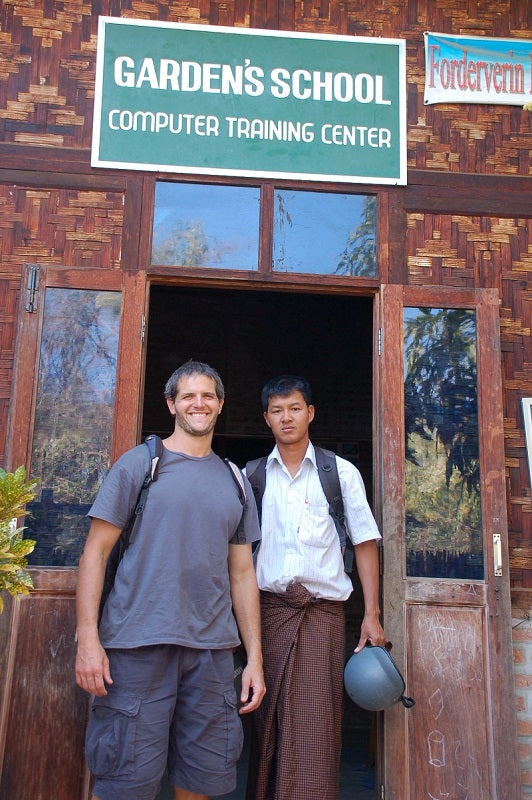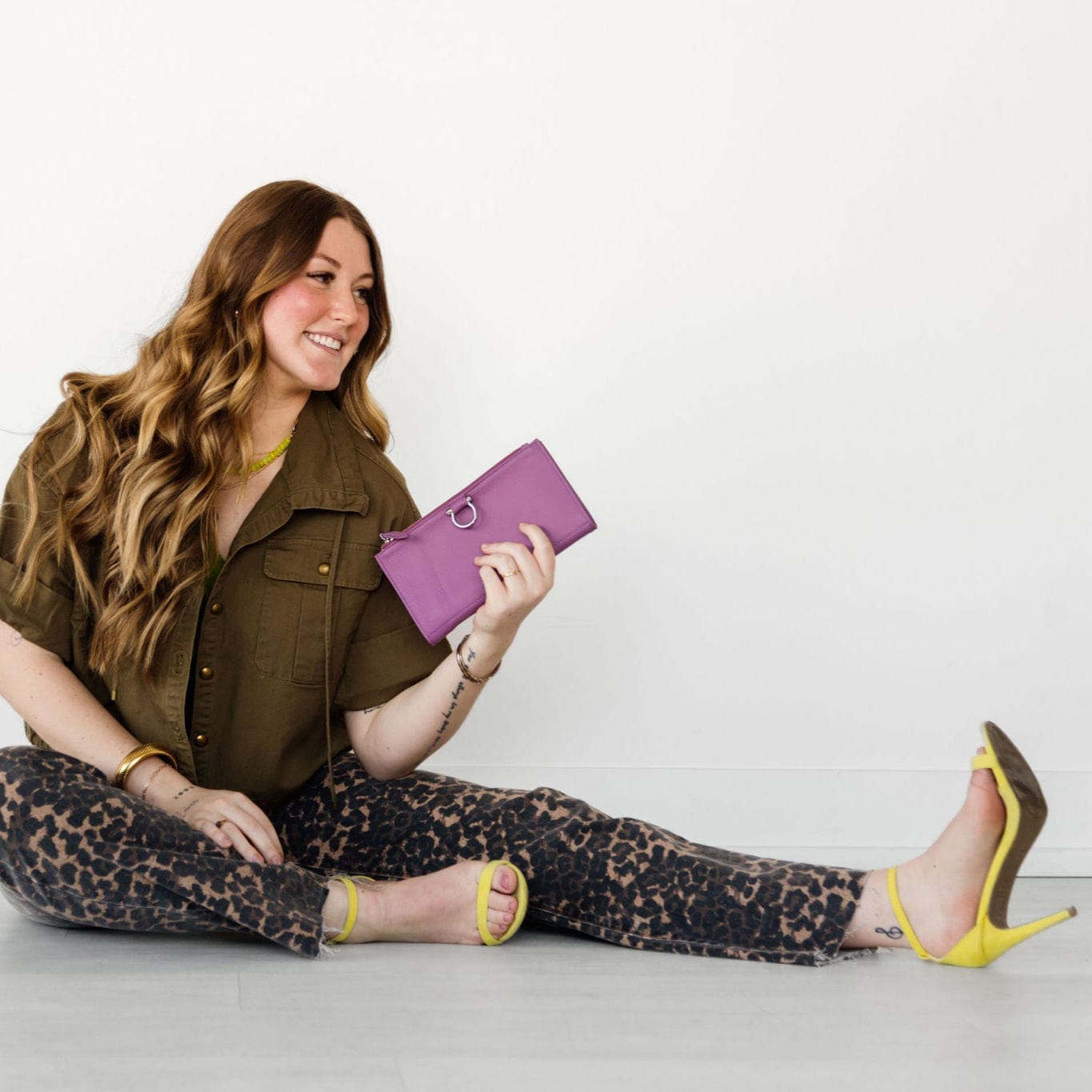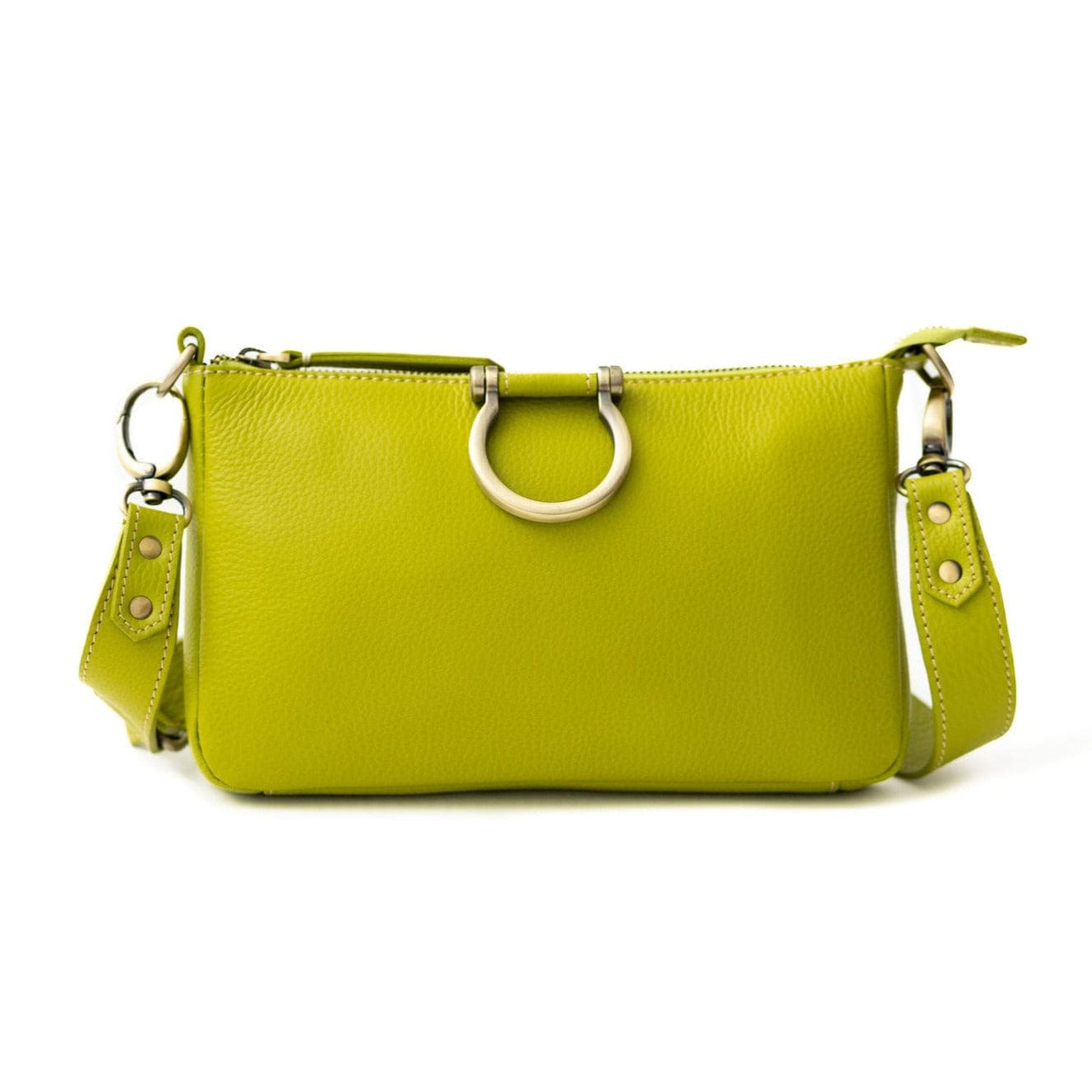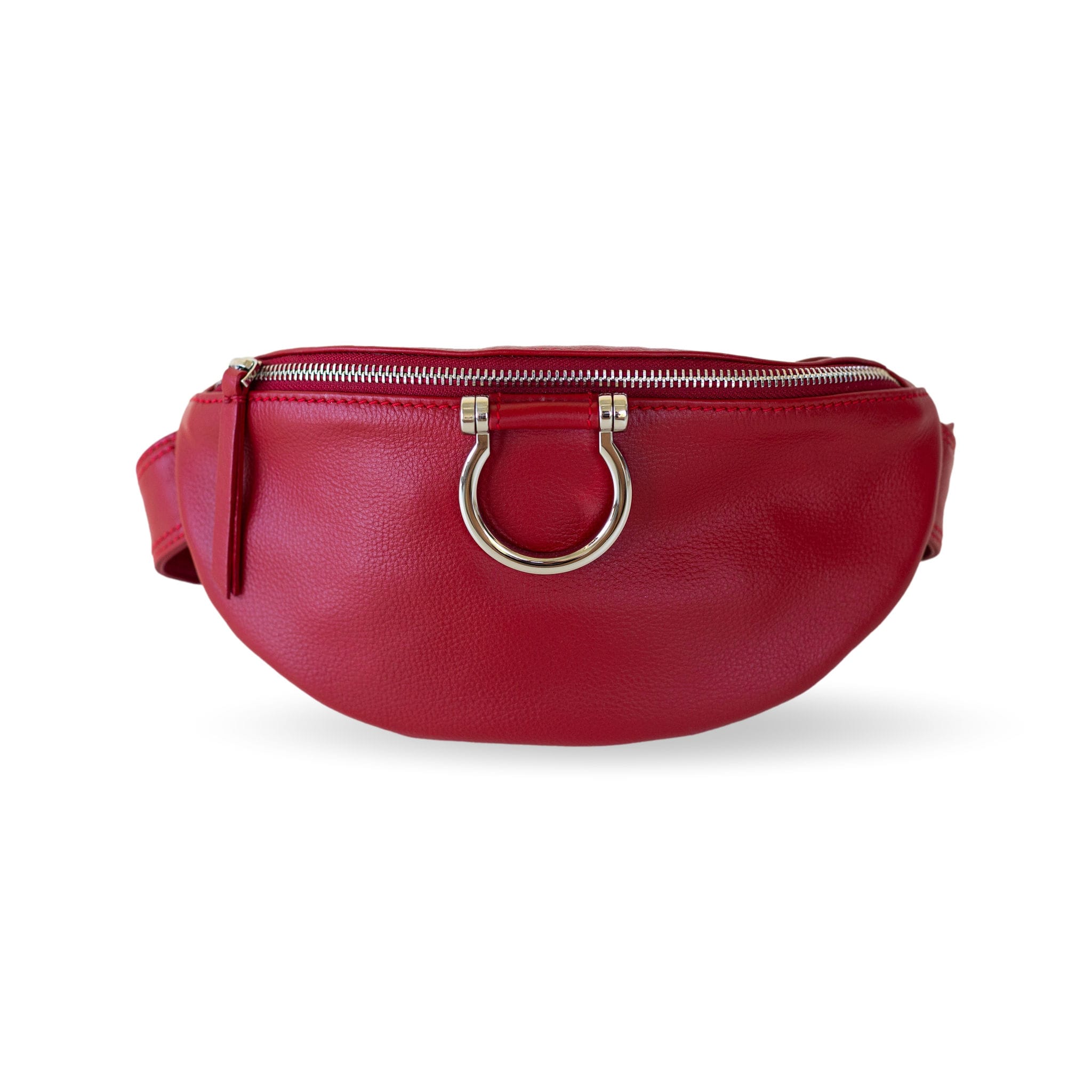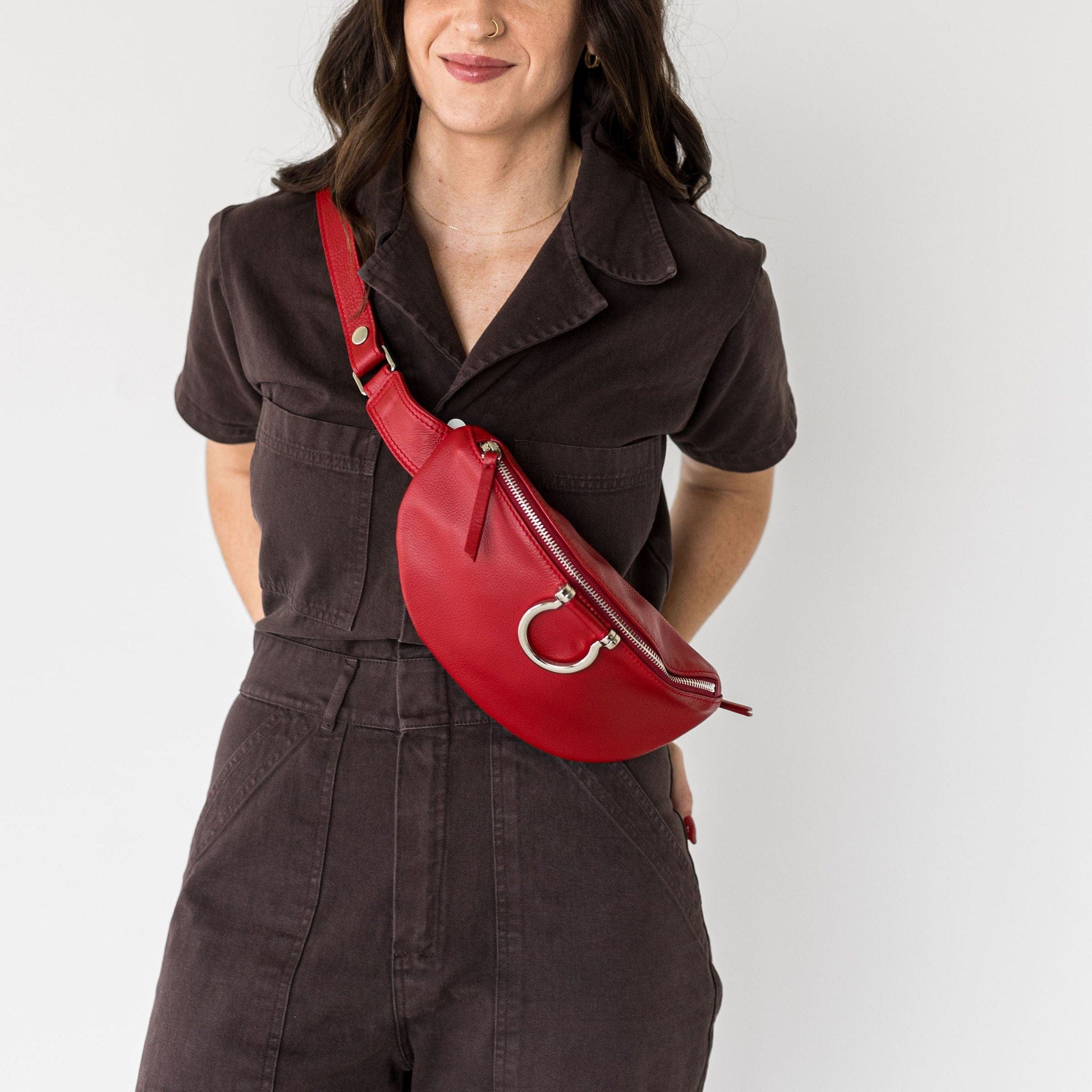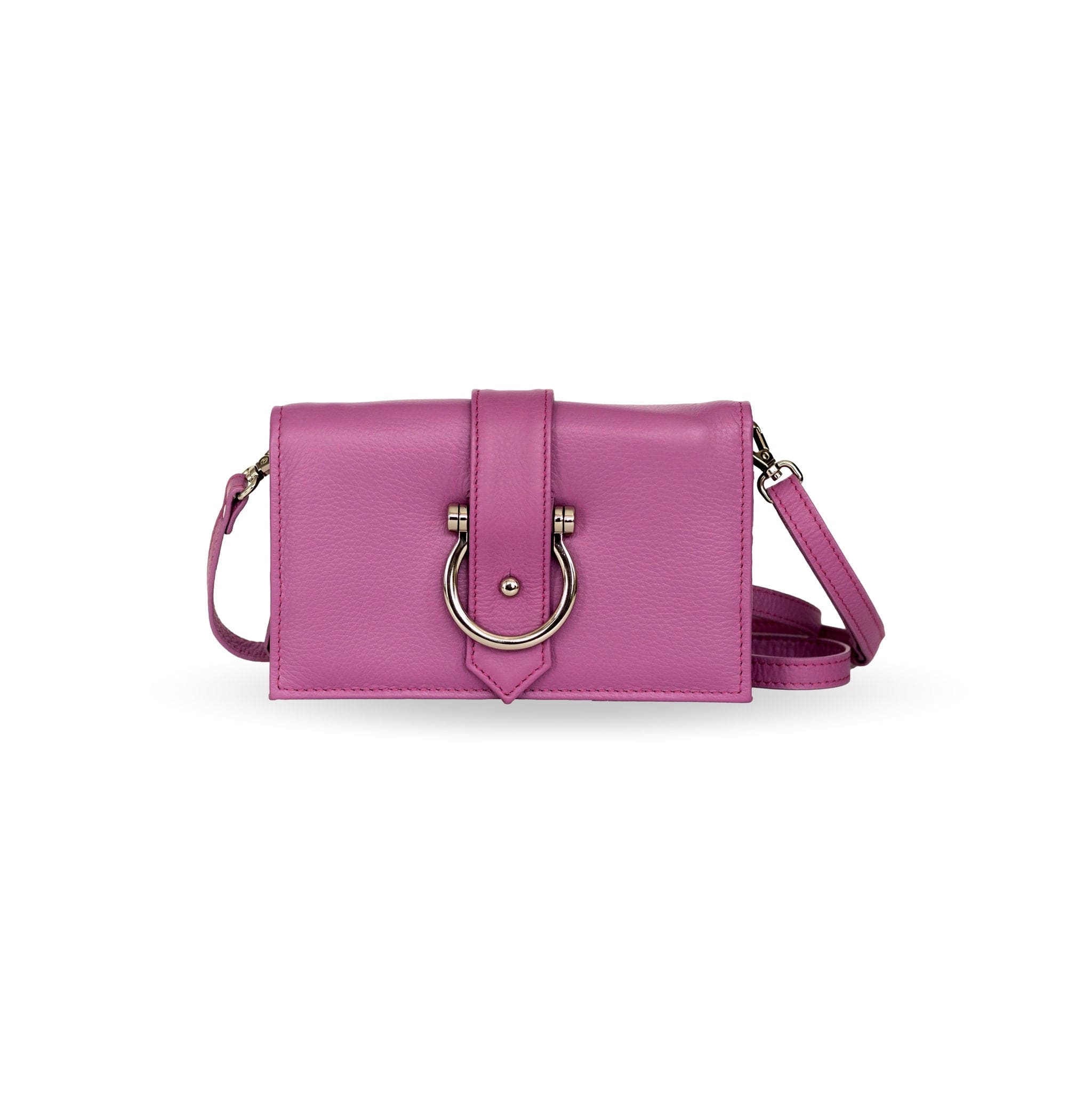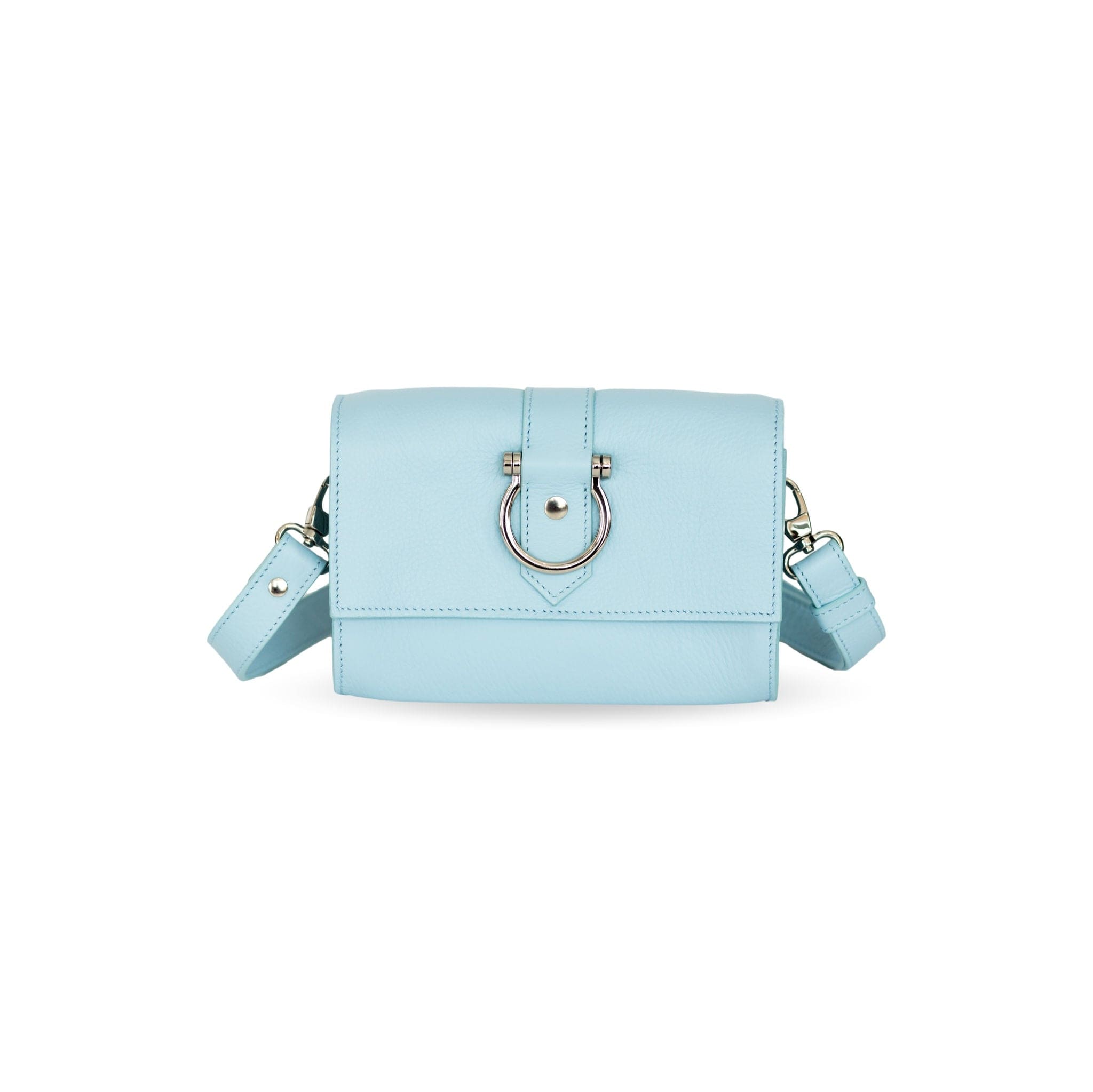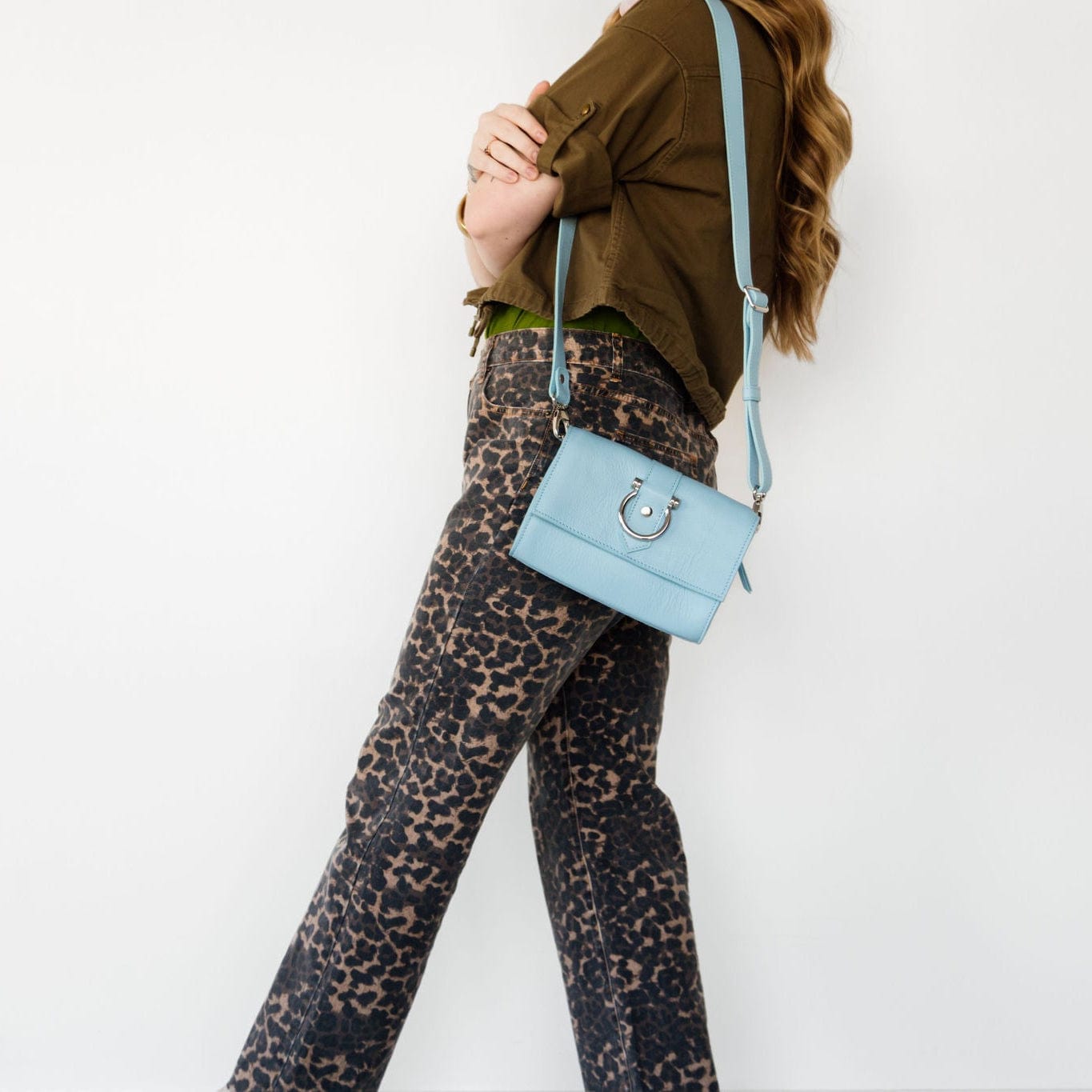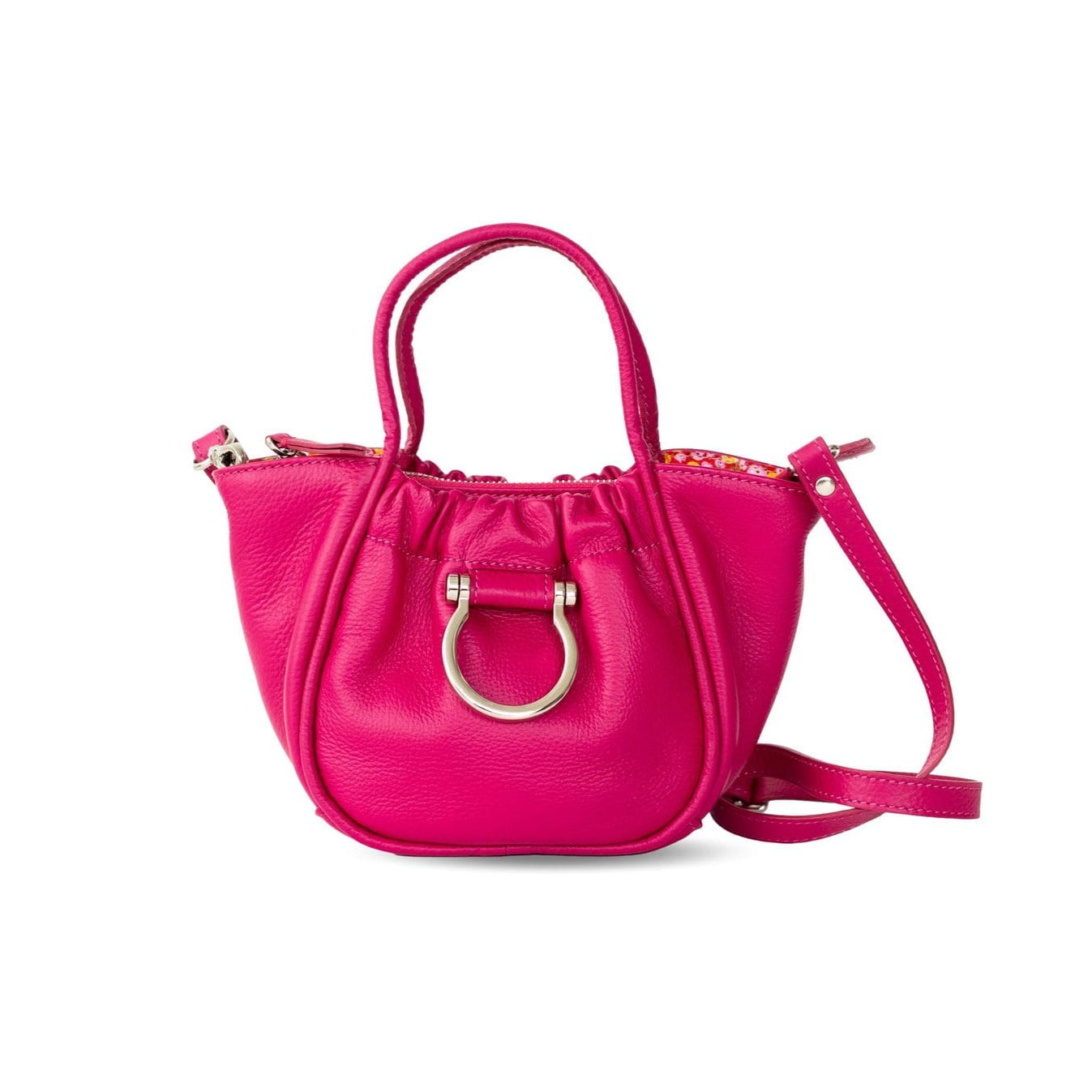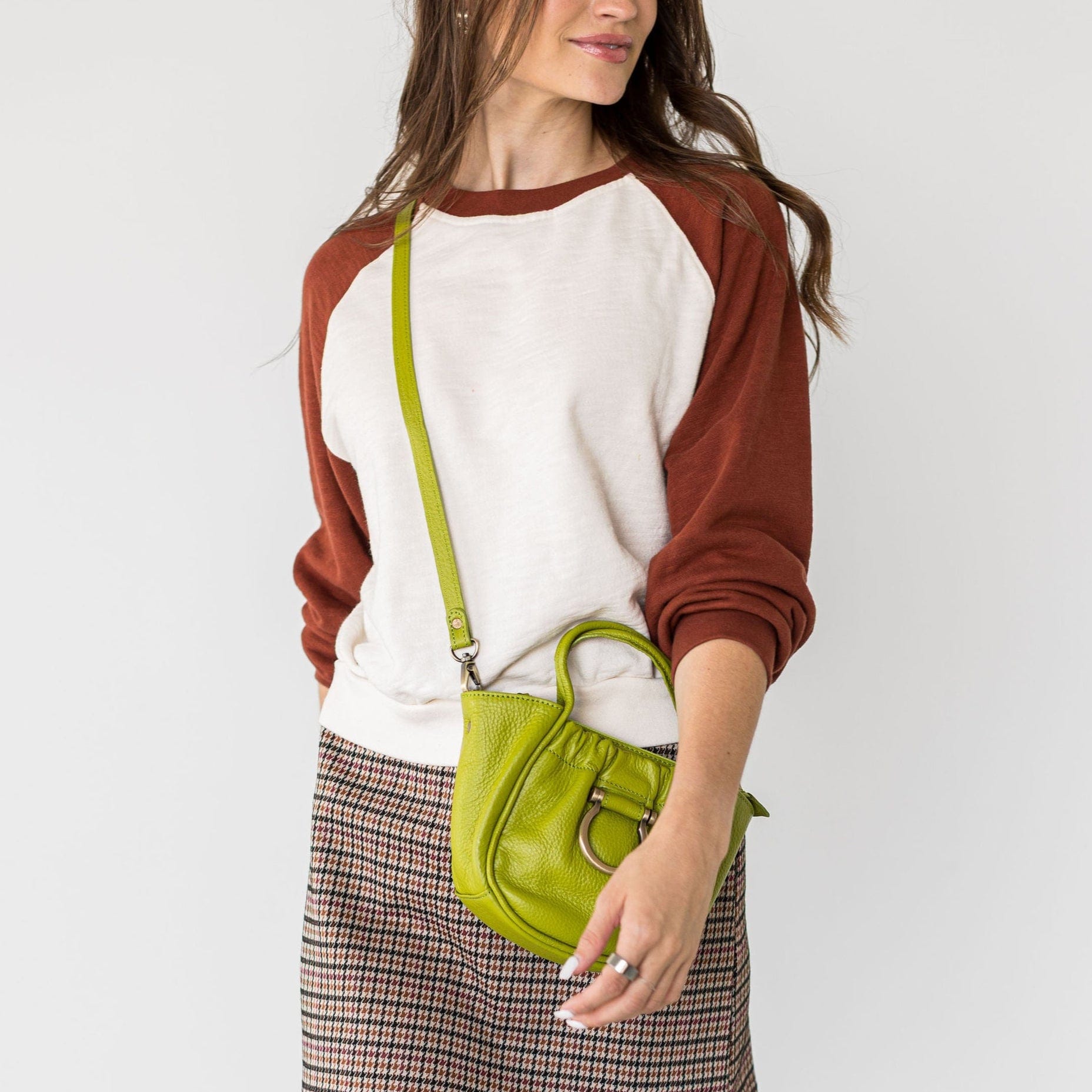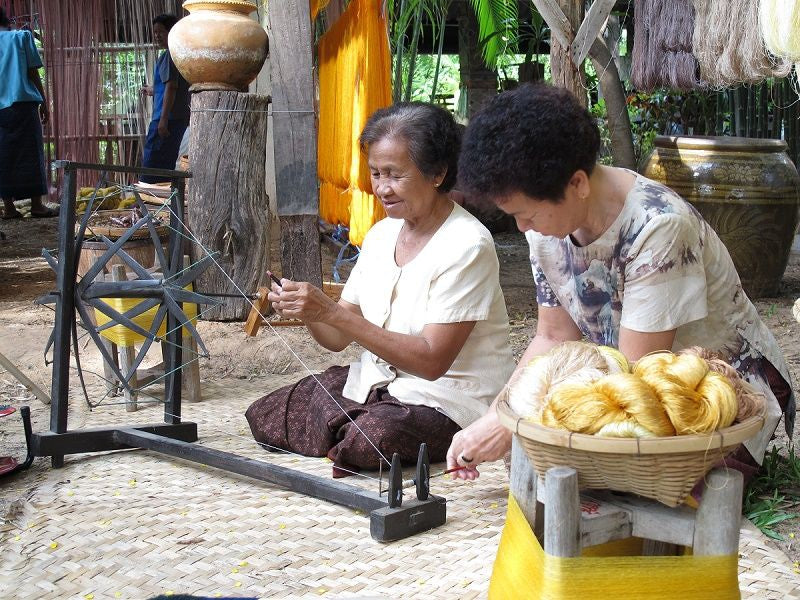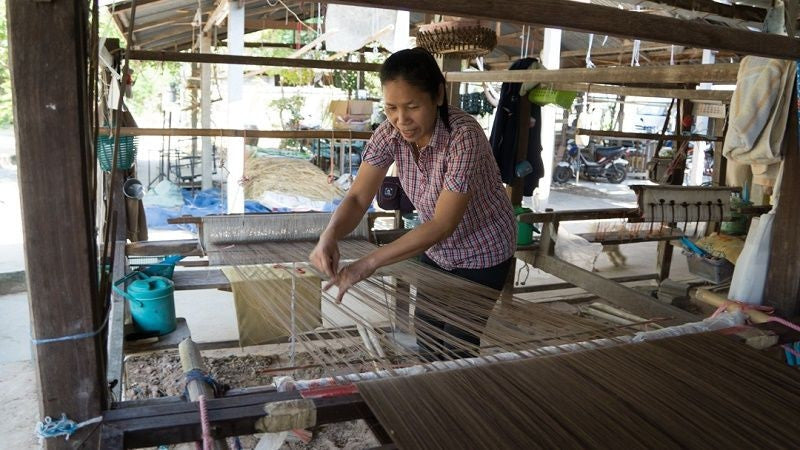
Matt Mullen — human rights activist, author of Pathways that Changed Myanmar, and Sapahn founder Brooke Mullen’s partner — is a crucial part of the Sapahn story. Matt’s passion for human rights and ethical buying is clear — from his upbringing as a veteran’s son, to his scholarship in political science and human rights, to his current dedication to combating corruption. Mullen states, “I’ve quite literally been interested in [human rights] my whole life. I grew up in a unique situation with my dad as a disabled veteran… I spent time in the VA and it was a political upbringing, so I always had an interest in issues of governance, particularly some of the tougher questions.”
The Mullen family lives in Thailand, where they are part of a lively community of artisans and friends. Both Brooke and Matt were drawn to Southeast Asia; even before they were married, they spoke extensively about travelling abroad, particularly to Southeast Asia. While Matt was researching programs, Brooke expressed an interest in living in Thailand specifically, and both had an affinity for the people and culture of Thailand.
Matt’s professional interest focuses primarily on human rights in Southeast Asia, particularly in Myanmar and Thailand. He expresses that he “knew [he] wanted to study human rights [and] to do it abroad. The US has great programs for sure, but [he] felt that getting international exposure was going to be key to see the issues from another point of view.” What better way to pursue their mutual passion for human rights and business than live with the people who make it happen, seeing the process unfold from end to end?
How do you combine business and human rights?

Mullen is first and foremost an activist and scholar. Considering his academic background, Mullen states that he felt he “didn’t belong in business” and did not consider himself an entrepreneur; however, seeing Brooke’s work with Sapahn and how ethical business can work in Thailand meant seeing fair trade in action, especially in the context of Sapahn’s relationships with the artisans that produce our products.
“I always saw business as a world I didn’t belong in when Brooke started Sapahn, being very entrepreneurial, and had her hand and interest in the business world,” said Mullen. “She was always the business person and I was always the political person.”
For Mullen, what’s cool is that Sapahn brought those two things together. “Living in Thailand, we were always so immersed in these issues. Part of what kept coming up in my work was [the questions of] ‘How do you mobilize opportunities when the government is dysfunctional?’ Brooke was wondering how to create a mutually beneficial relationship with these people,” said Mullen. “Sapahn is her baby, but being on this journey with her has provided a new understanding of what business is and what it can do. She has learned that these issues applied to the business world in a best practice approach that creates opportunities for people even when the economy isn’t great.”

When asked why Southeast Asia in particular interests Mullen, he discussed the economic issues in countries that surround Thailand, such as Myanmar and Cambodia: “Even in the beginning, I had an interest in the labor side of things in what’s called “factory Asia”, which isn’t a very nice term, but it’s true: our things are made in Asia, so I was interested to see firsthand how it played out. I’ve always had an interest in oppression and dictatorial systems like tyranny and how it happens. There are a lot of countries surrounding Thailand, particularly Cambodia, Myanmar and Laos that have current or historical experiences with tyranny. I found [Thailand] to be an interesting place to learn more about that area.”
Economics play a major role in Southeast Asia
In his book Pathways That Changed Myanmar, Mullen discusses how the country changed from a dire situation of military rule and dictatorships to the place it is today. A country rich in natural resources and labor, Myanmar once operated in a system of shadow economies, but once the military rule began to shift and a more formalized economy emerged, cost of living skyrocketed and the people of Myanmar suddenly found themselves in a completely different economic situation.
Mullen explicates the often overlooked country and how their economy changed in recent years: “When we took interest in Myanmar, it was a dire situation. Six decades of military rule had taken its toll. The economy was in ruins. It’s quite a rich country in terms of natural resources and labor, so people were making money, but the masses were living in survival mode. So everything operated in shadow economies, so laws, codes, everything was sort of up in the air. People found ways to make it work, so when the military rule began to fall apart and the National League for Democracy occurred, that economy started to become functional and formal, so people could actually go exercise their rights, but unfortunately, most of the people were living in these shadow economies and buying goods for cheap.”
He continued, “Once the economy started to formalize, things started to get more expensive and the cost of living shot up really quick and the wages were not keeping pace with it. So what we’re seeing now — that the cost of living and economy is rising, but wages have not kept pace. Things are shifting in a really positive direction and improving, but when you talk to people, they say that life is harder than it ever has been. People weren’t ready, they weren’t in a position to take on all these costs and laws. So the only people who could keep pace were the people who were already doing well. So you have a lot of people left behind.”

Sapahn changed the way the Mullen family thought about how business and human rights relate to one another. Sapahn’s close relationship with its artisan communities allow the Mullens to experience this combination firsthand and make a direct impact on improving working conditions and expectations.
Sapahn builds community with Thai artisans
Matt’s face lights up when he talks about the people in these communities and their enthusiasm: “I get to tag along and see Brooke have these amazing relationships. I go along with her to every artisan community and every time we show up, there is such a feeling of family... that’s something I think of when I think of Sapahn, is the family feeling of the artisan community. When I show up, people are scrambling around giving hugs. It’s such a warm embrace.”
The couple also have a new addition, son Micky, who is popular with their family of artisans: “We’ve gone to a number of communities with Micky, and Micky is part of the family. Micky went to the leather shop that Arpa and Mana run, and he was crawling around on purses making everyone laugh. Husband and wife team Susie and Tom will scream across the street and run over; even without Sapahn, there is a genuine connection there. They love Micky the same way our family in Nebraska does.”
Relationships with the artisan communities have grown for the Mullens as well as Sapahn. Their son Micky has been “adopted” by artisans such as Susie and Tom, who are always excited to see how Micky has grown. There is a sense of “genuine care” they show towards the Mullen family, and that is something that transcends any cultural or language barrier.

When asked about the gender politics in Thailand, Mullen states that the women Sapahn employs are becoming more independent with a growing acceptance of married woman working outside the household. “Empowerment doesn’t precede opportunity,” Mullen says. “A lot of women’s groups in Thailand find themselves in a position of marginalization, but yet, there’s the question of what do you do about it. You can go through advocacy, create networks, or collectively organize. A lot of it comes down to who controls the finances in the family and who is bringing in money.”
“What’s interesting to see in Brooke’s community,” he states, “is when that breadwinning equation shifts. That’s when you see a true illustration of empowerment. The game falls apart very quickly when there is no dependency anymore.”
There is certainly tension between a woman’s newfound independence through earning her own money and her interpersonal relationship with her male partner. But, when women are empowered, they are better able to find the language to communicate with their partners. It’s an exciting thing to witness, as Mullen states: “A lot of men embrace women gaining financial independence. They are able to have those conversations where women are able to show the men another way of doing things. I have seen a good amount of men have these conversations and respond to it with love.”
What can you do to fight for human rights?
So what can you do as a customer to create more awareness? Mullen encourages shoppers to “vote with [their] wallet” — and know that every purchasing decision has a direct impact on another person. Ask questions about the goods you buy to see if there is a tangible impact your purchase makes. The tides are turning in favor of ethical and sustainable buying practices. “Every person can make a tangible difference in this incredibly massive system. If people decide to start asking questions like ‘Who made this?’ ‘How is it made?’ ‘Under what conditions?’, that tends to have a ripple impact that is more tangible and substantive than some of the more traditional political movements.”
With Sapahn, we are creating possibility. As a consumer, you have a great opportunity to support artisans and each other. By asking questions and buying from businesses that support and empower others, the process of changing the world can continue. What we buy and where we buy from is a statement we make. As Mullen says, “What I think makes Sapahn unique is consuming in a way that doesn’t harm others, and consuming in a way that celebrates human potential and has a positive impact. It’s not only avoiding the negative, but a massive celebration of what could be. There is an incredible amount of potential here.”

